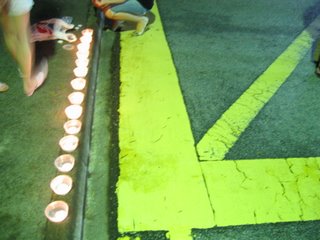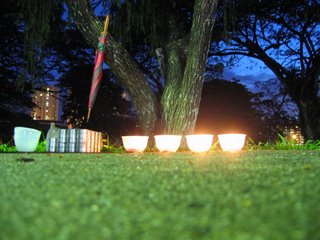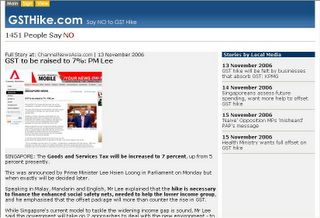30 Nov 06
http://www.wmd.org
The World Movement for Democracy condemns the jail sentence of WMD participant in Singapore, Dr. Chee Soon Juan, Chairman of the Alliance of Reform and Democracy in Asia (ARDA) and Secretary-General of the Singapore Democratic Party (SDP) and his colleagues.
On November 23, 2006, the Subordinate Court of Singapore sentenced Dr. Chee to a five-week imprisonment for the "crime" of speaking in public without a valid permit. Two of his colleagues from SDP, Mr. Gandhi Ambalam and Mr. Yap Keng Ho, were sentenced to shorter terms for speaking to passing citizens as they were selling the party newspaper on the street on April 22, 2006.
The World Movement is also concerned about Dr. Chee's health condition. According to ARDA, Dr. Chee's health has considerably deteriorated. Although Dr. Chee is not on a hunger strike, the prison authorities interpret his failure to eat as such, and will punish him by depriving him of family visits and "yard-time."
Dr. Chee will also have to attend a trial on December 21 for attempting to leave Singapore without a permit (to attend the World Movement's Fourth Assembly in Istanbul), as well as another pre-trial on January 4 for a suit brought against his family. These actions and charges give the appearance of orchestrated efforts to restrain Dr. Chee and his SDP colleagues in their efforts to advance democracy in Singapore.
Friends from the Singapore Democratic Party have also made numerous requests to the prison authorities to see Mr. Yap Keng Ho, who is now reportedly on a hunger strike, but the prison authorities have yet to let anyone see him. His condition is unknown. Mr. Gandhi Ambalam has a heart ailment, and his family has not received news on how he is doing since their first visit to him.
To view a video message from Dr. Chee Soon Juan, go to: http://www.youtube.com/watch?v=ZnLqpYupQfg
For statements by WMD participating organizations, go to:
Alliance for Reform and Democracy in Asia (ARDA):
http://www.asiademocracy.org/content_view.php?section_id=1&content_id=724
World Forum for Democratization in Asia (WFDA):
http://www.wfda.net/news_detail.htm?id=255
For information about Dr. Chee's health condition, go to: http://www.singaporedemocrat.org/articleOct25trial33.html
For a previous statement from the WMD Steering Committee (October 17, 2006), go to: http://www.wmd.org/democracyalerts/oct1706.html






